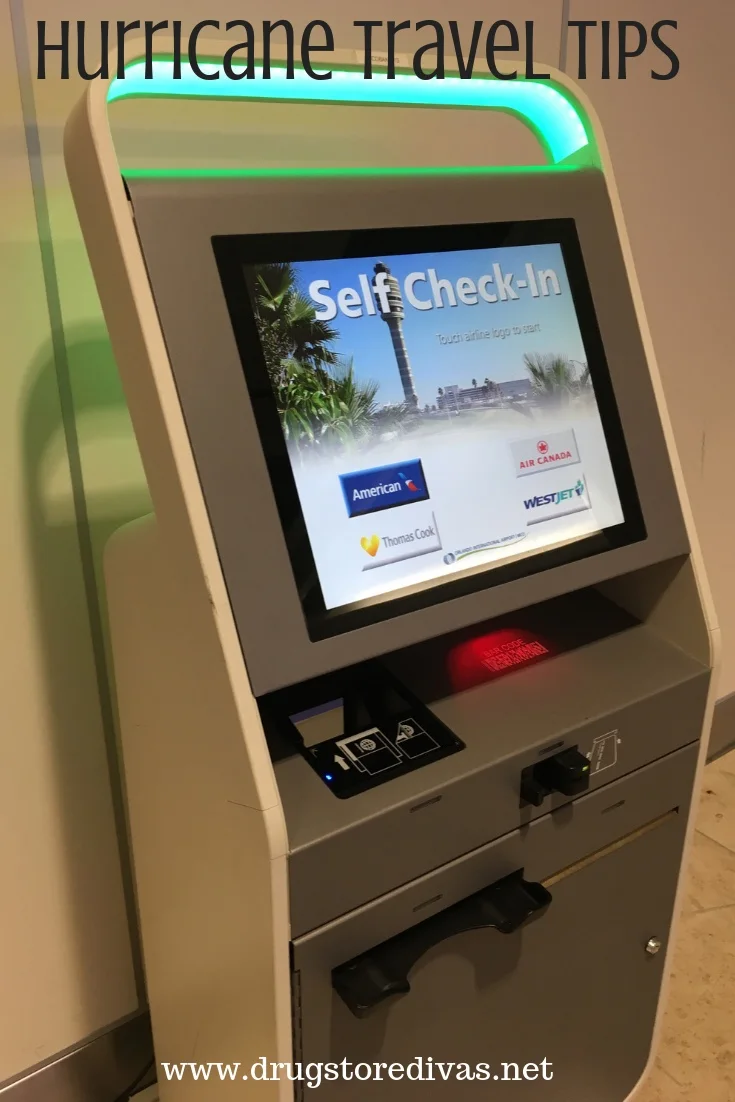If you have to travel away from a hurricane, be sure to check out these hurricane travel tips before you evacuate.
For more hurricane tips, check out all of our hurricane preparedness posts.
The truth is, if you don’t have to travel during a natural disaster, don’t. That’s a good rule of thumb. Another good rule, though, is if there’s a natural disaster heading straight for you, move. And move fast.
We’ve had to do the latter, and since this is Hurricane Preparedness Week, I figured I would update our hurricane travel tips, just in case you have to move — and move fast — soon.
Honestly, this is a good post to bookmark and come back to when need be.
A few years ago, back in 2016, when Hurricane Matthew had us on its radar, we stayed put. But, when Florence was headed straight for us in Wilmington, that was a different story.
That time, we were actually scheduled to fly to New York on the Wednesday before the storm. I wasn’t sure that we would actually get on that flight, so I was able to change our flight to the day before. That gave us less time to prepare, so in case you are in a similar situation, this will help.
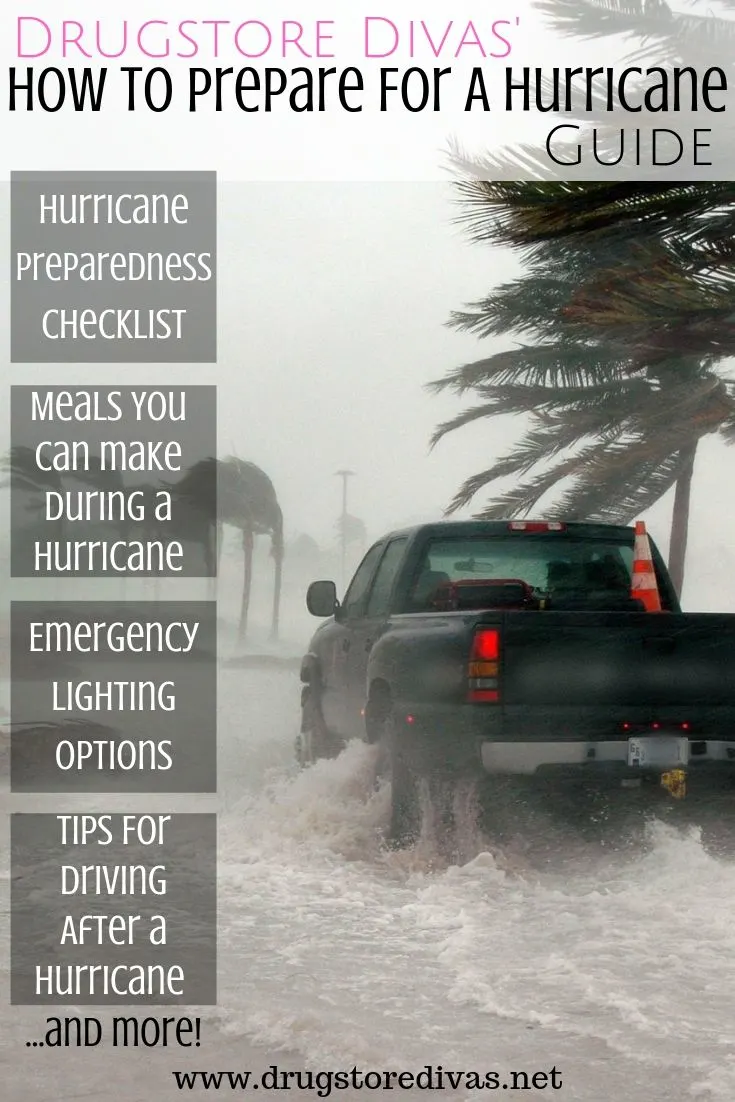



This is just one of the many posts about hurricane prep in our How To Prepare For A Hurricane Guide. Click that link to find out more so you’re the most prepared if and when when the storm hits.
Hurricane Travel Tips
Affiliate links are included in this post and Drugstore Divas may make a small commission if you use them.
Heed the evacuation warnings
When Pete got to work the Monday before Hurricane Florence hit, he was sending me updated hurricane information. Part of that was about schools being closed for the remainder of the week. See, where we are, many of the high schools are used as shelters, so schools must be closed in order to accommodate anyone who evacuates.
And many people in our county had mandatory evacuations. Low-level areas, homes in flood zones, and many unincorporated areas were given mandatory evacuations. Our community was in a voluntary evacuation area.
Many of our neighbors were over on Sunday night, talking about how they weren’t going to evacuate. By Monday, only two of our neighbors were planning on staying put. And by the time the hurricane hit, all of our neighbors had left town.
If there are evacuations in your area, even if it’s not specifically your home, you may want to leave. It’s better to be safe than stubborn.




Fill up your tanks
As soon as you decide you are leaving, fill up your car(s) with gas. In our area, the day of the voluntary evacuations sent people into a panic. Everyone ran out to get gas, and a friend told us over 50 gas stations were sold out.
You should fill up your car before a storm, but also, fill up any gas cans you may have. We have one for the lawn mower, so you may have one too. It can hold a little extra gas, which is good to have to be safe, especially if your power goes out and you need to run a generator.
And filling up your tank also goes for your propane tank too. If you have a propane grill, fill the propane up now. That way, even if you lose power, you’re still able to cook.
Don’t forget, we have a bunch of ways to save on gas that you can definitely take advantage of, even if you’re filling up in an emergency. Just because you’re in a rush doesn’t mean you need to overpay.
Get cash from the bank
No one carries cash anymore. Between credit and debit cards, plus Apple wallet on your iPhone, you don’t really need to. But the problem is credit and debit cards may be useless if the power goes down.
If there’s no power, stores can’t run the registers. Cashiers can use a calculator to add your total, but there’s no way to swipe a credit or debit card. So you’ll need to pay with cash. Which means you need cash.
And if there’s no power, that means no going to the ATM for cash because the ATM machines will be down since, ya know, they run on power. So before anything happens, go to the bank and get cash.
Something to keep in mind: You may have a daily limit on how much cash you can withdraw in one day. A simple call to your bank can increase the limit. When I did that, the increase was effectively immediately and I was able to withdraw what I wanted.




Book a room
You’re not the only one trying to get out of Dodge. Everyone in your area is trying to find somewhere safe to go. And that means hotel rooms will fill up quickly. Once you figure out where you want to evacuate to, book a hotel room.
Definitely look at a site like booking.com to get a cheap rate on that hotel room. If you can’t find a hotel, look at alternatives like Airbrb and Vrbo.
Check the hotel’s cancellation policy too. Some hotels will let you cancel as long as it’s more than 24 hours before you are scheduled to arrive. So, if the hurricane’s path changes and you end up not needing to evacuate, you won’t lose your money.
For more tips on hotels, check out our post about frugal hotel amenities to look for.
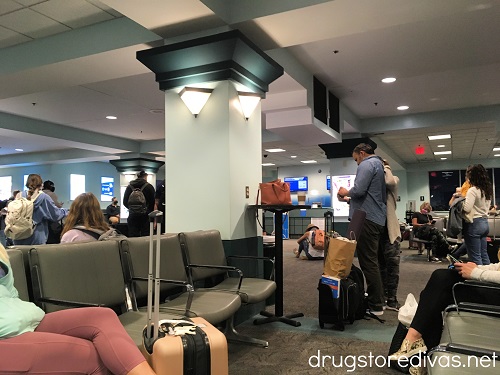



Change your flight
If you’re like us and coincidentally already have a trip planned, see if you can change your flight. Many airlines will reschedule you without a change fee and without charging you the difference in price if your airport is in the hurricane’s path.
We originally paid $100 for a one-way economy ticket from North Carolina to New York. When I looked at alternative flights, I couldn’t find any available economy tickets. All I could book was the upgraded economy seat … for $750 each. I called the airline directly, and the representative was able to find economy tickets, waive the $150 change fee, and didn’t charge us the $650 difference.
So before trying to be your own travel agent and rebooking yourself, call the airline and see what they can do for you. For us, a phone call saved us $1,500.
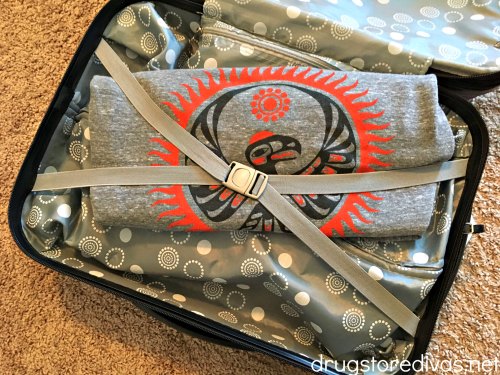

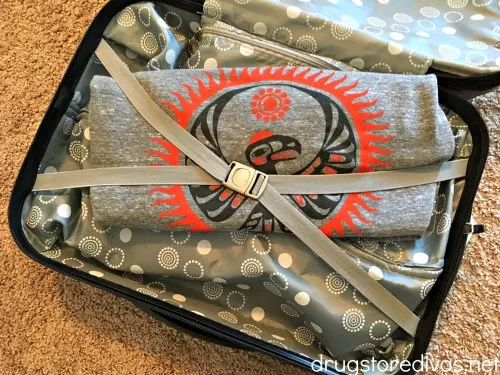

Pack your essentials
Regardless of if you’re flying or driving to safety, pack your essentials. Make sure you have your ID, cash, birth certificates, passports, marriage licenses, etc. Anything important needs to be packed somewhere safe.
I would also suggest putting the important papers you’re not traveling with in a plastic envelope or bag. That way, if your home does get flooded, your important documents won’t be destroyed by water.
Anything non-essential should be left at home. You don’t want to lug a suitcase full of random items that can be replaced.
For a longer explanation of what to pack and why, check out our What To Pack If You Have To Evacuate For A Hurricane post.
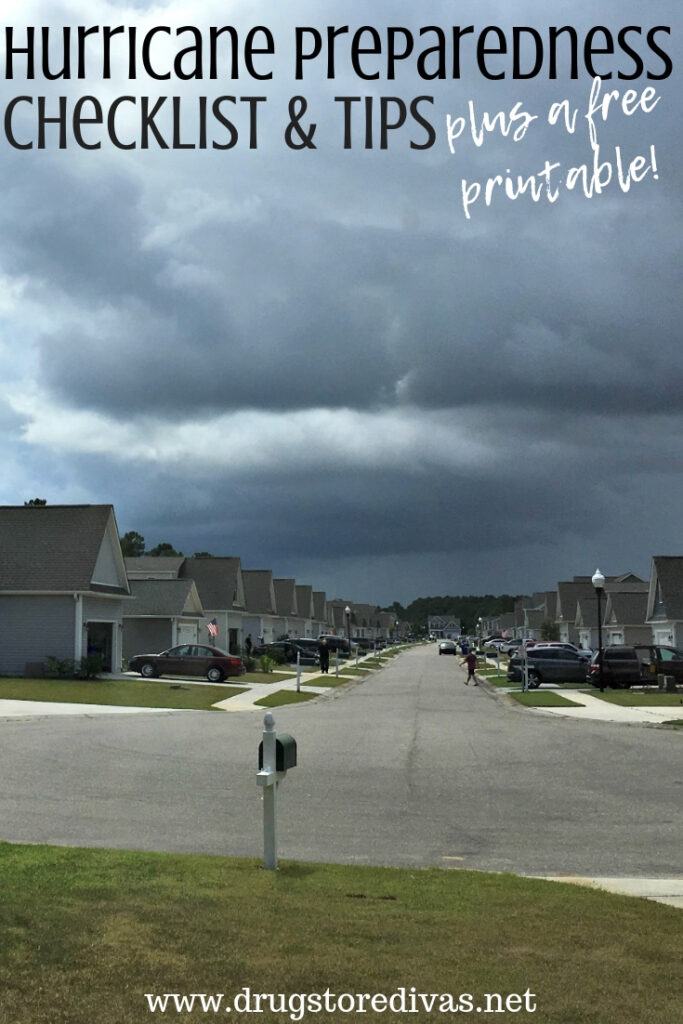

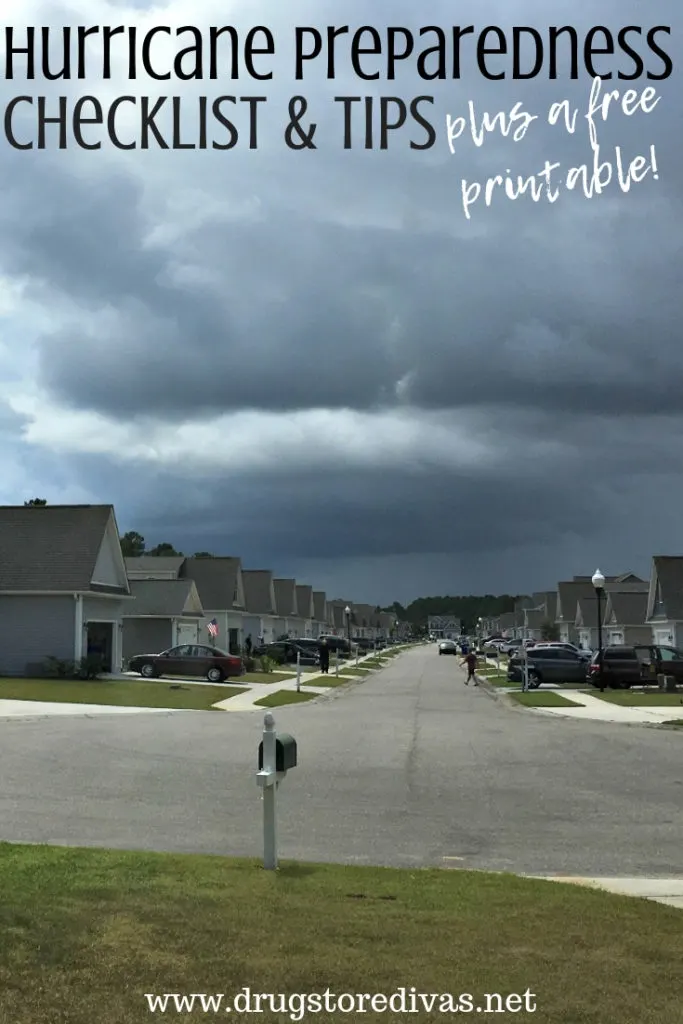

More Hurricane Preparedness Tips
These travel tips are helpful for when you’re leaving. For when you’re returning, check out our 5 Tips For Driving After A Hurricane.
If you’re evacuating during the hurricane, you want to make sure your home is ready, so check out our Tips To Prepare Your Home For A Hurricane. To figure out if you lost power while you were gone, The Quarter On A Cup Of Ice Trick is the best hack we know.
If you’re staying, you might lose power. So be sure to stock up on these Emergency Lighting Options For Hurricane Preparedness. And, you’ll have to eat, even if you lose power. So our list of Meals To Eat When You Lose Power During A Hurricane (Plus 30 shelf-stable foods to buy now) will help. And, if you bought bread (because everyone buys bread, milk, and eggs), this What You Can Do With Bread During A Storm will give you some great ideas.
And don’t forget about our Hurricane Preparedness Checklist & Tips to make sure you are as ready as you can be for the hurricane.
What other hurricane travel tips do you have? Be sure to leave them in the comments.

